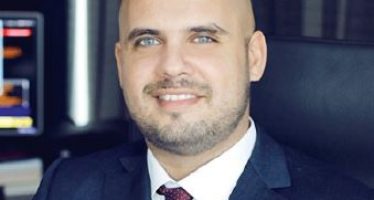Nicholas Brady: Soccer Finance and the Pragmatist Who Fixed a Debt Crisis
 Back in the days when a top-scoring soccer player could be enticed for a few million, Brazilian attacker Romario set a record when PSV put down all of six million dollars to have him play for the club in Eindhoven, The Netherlands. It was an unheard of sum except that the Dutch paid but a fraction of the contracted amount.
Back in the days when a top-scoring soccer player could be enticed for a few million, Brazilian attacker Romario set a record when PSV put down all of six million dollars to have him play for the club in Eindhoven, The Netherlands. It was an unheard of sum except that the Dutch paid but a fraction of the contracted amount.
Smart thinking on the part of the club’s bankers meant that PSV got its star player for barely $1.5m. They came up with a cunning plan. Since Brazil couldn’t meet its debt obligations and was technically still in default, the countries bonds could be had for a song and a dance from bankers all too happy to pass on the proverbial buck.
In order to pay Romario’s Brazilian club, ING bought up Brazilian bonds for pennies on the dollar. Next, the bank offered the Brazilian Central Bank an opportunity to buy back its own securities at a whopping 75% discount. The Brazilians – fairly amazed at the simplicity of the deal – readily agreed. Thus money was created out of nothing and Romario went on to score many a goal for PSV while the ING debt buyback scheme got hijacked by the Americans. No harm done.
Nicholas Brady served as Secretary of the US Treasury from 1988 to 1993 and as such had to deal with the significant fallout from the Latin American debt crisis which erupted with Mexico’s 1982 default. Mr Brady took the debt swap idea first developed by the Dutch ING Bank a step further and to its logical conclusion. Under the Brady Plan, indebted countries would be able to issue new bonds with which to redeem old, devalued ones.
The standardisation of emerging market sovereign debt that followed facilitated both risk-spreading and securities trading. This secondary debt market is still fully functional today and operates on the same principles first formulated by Mr Brady.
The Brady Plan fixed the debt crisis of the 1980s imposing a “haircut” before that term had been invented. Brady Bonds were the main component of debt restructuring schemes and benefited tens of struggling countries. Most have now bought back all their outstanding Brady Bonds. The only country to ever default on its Brady Bonds was Ecuador. It did so in 1999.
You may have an interest in also reading…
CFI.co Meets the CEO of Fortress Investments: Hamed Mokhtar
Hamed Mokhtar is the managing director of Fortress Investments of 2011. Born and educated in the United States, Mr Mokhtar
World Bank Group: Should Oil Exporters Shift Capital Stock to Renewables?
As the Financial Times pointed out recently, oil companies such as ExxonMobil and Shell would, under measures considered for the
New World Bank Initiative to Help End Wasteful Energy Subsidies
A new World Bank-ESMAP facility helps countries develop and implement effective, sustainable energy subsidy reform programs that protect the poor


















































































